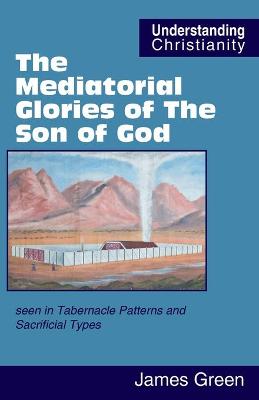Understanding Christianity
1 total work
The author of this book, James Green (1859-1936), was a frequent contributor to early issues of Scripture Truth in the early part of the twentieth century. By profession he was an artist and lithographer, notable for his illustrations in Arthur Mee's I See All and subsequent Children's Encyclopaedia.
As he explains in the preface, his artistic talents were put to considerable use with a commission in 1917 to create a series of pictures to illustrate the Tabernacle in the wilderness described in the book of Exodus. While many models had been made, in using them for lecture purposes (in a pre-digital age) it was recognised there was great difficulty in a large audience seeing the details of small items easily. It was thought that large diagrams in colour would serve the purpose better. He completed the commission the following year. The original set of pictures were used on several occasions in lectures by A J Pollock, author of The Tabernacle's Typical Teaching, and by the author.
In the summer of 1929, a new set was painted on lighter canvas to ease portability; a useful feature as the ageing author continued delivering lectures around the UK. Photographs of the set illustrate this volume.
The author found that his lifetime of study of the detail of the Tabernacle had, "under the hand of the God, resulted in a much fuller apprehension of the glories of Christ, conveyed in the patterns of things in the heavens". In his latter years, with the encouragement of many, he set down the impressions he had received, that others may profit by them. The present volume was completed shortly before his death in 1936 and has remained unpublished until now. The publishers are pleased to bring this book into print at last, assured that it will provide as much spiritual refreshment today as when the author first shared his appreciation of its great Subject.
For those who wonder why so much of the book of Exodus is taken up with a detailed description of an elaborate tent and its contents, this book provides an excellent explanation. For those who want to understand how such a description is evidence of the presence of "Christ in all the Scriptures", the author explores this theme enthusiastically in detail.
As he explains in the preface, his artistic talents were put to considerable use with a commission in 1917 to create a series of pictures to illustrate the Tabernacle in the wilderness described in the book of Exodus. While many models had been made, in using them for lecture purposes (in a pre-digital age) it was recognised there was great difficulty in a large audience seeing the details of small items easily. It was thought that large diagrams in colour would serve the purpose better. He completed the commission the following year. The original set of pictures were used on several occasions in lectures by A J Pollock, author of The Tabernacle's Typical Teaching, and by the author.
In the summer of 1929, a new set was painted on lighter canvas to ease portability; a useful feature as the ageing author continued delivering lectures around the UK. Photographs of the set illustrate this volume.
The author found that his lifetime of study of the detail of the Tabernacle had, "under the hand of the God, resulted in a much fuller apprehension of the glories of Christ, conveyed in the patterns of things in the heavens". In his latter years, with the encouragement of many, he set down the impressions he had received, that others may profit by them. The present volume was completed shortly before his death in 1936 and has remained unpublished until now. The publishers are pleased to bring this book into print at last, assured that it will provide as much spiritual refreshment today as when the author first shared his appreciation of its great Subject.
For those who wonder why so much of the book of Exodus is taken up with a detailed description of an elaborate tent and its contents, this book provides an excellent explanation. For those who want to understand how such a description is evidence of the presence of "Christ in all the Scriptures", the author explores this theme enthusiastically in detail.
